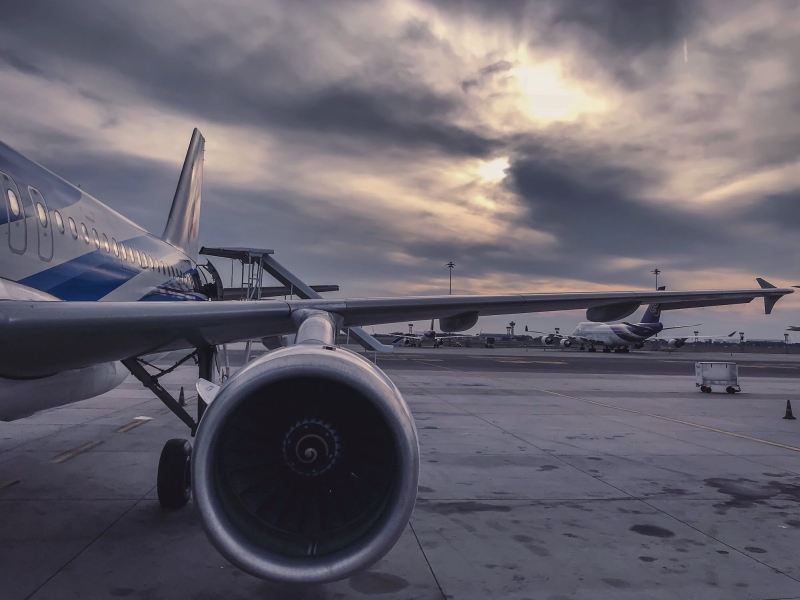
Airline Insolvency Review – Proposals do not overcome challenges
09 May 2019
Commenting on the publication of the Airline Insolvency Review's final report, Duncan Swift, president of insolvency and restructuring trade body R3, says:
"The introduction of a new Special Administration Regime to allow insolvent airlines to continue to fly, at first glance, doesn't seem to resolve some real practical difficulties. One of the reasons an insolvent airline's planes are safely grounded at home in the UK is that - without well-publicised financial backing for a rescue - planes are vulnerable to creditor action. It's all too easy for a disgruntled food or fuel supplier to block a plane on a taxiway at an overseas airport until they've been paid what they're owed. This would pose a risk to passenger safety and disrupt the whole insolvency process.
"If full financial backing is there, the risks of creditor action are lowered because creditors are more confident of being paid. Without full financial backing, there are other complex issues to resolve, including crew wellbeing and insurance costs. A Special Insolvency Regime for airlines won't make these problems go away.
"Another concern is the proposal that the primary purpose of an airline administration be altered so that passenger repatriation takes precedence over duties to creditors. This will have an impact on creditors' risk analysis when it comes to trading with or lending to an airline, and could affect access to finance for the sector.
"The Government is already considering a number of reforms to the wider insolvency and restructuring framework, which we think would make more of a difference to rescuing businesses - including airlines - than the creation of a plethora of special administration regimes. The Government would be better off pursuing these wider reforms.
"The introduction of a Flight Protection Scheme as a means to fund passenger repatriation is welcome, and spreads the cost of the process without hitting taxpayers and creditors. It looks like it would work on a similar basis to the ATOL scheme, which is an already well-established part of the framework."
The Review's Recommendations - A Summary
Repatriation
The review recommends a formal repatriation protection scheme is put in place that is practicable, effectual and affordable. It refers to this as the Flight Protection Scheme. The review says the Scheme should protect any air passenger whose journey began in the UK, and who has a ticket to return on an airline that becomes insolvent while they are already overseas. The protection would apply irrespective of how, or from whom, the ticket was purchased or paid for.
The review says that if government chooses to implement the proposed Flight Protection Scheme in full, and passengers are charged, via their airlines, for protection, they would be able to reclaim the cost of replacement flights from the Scheme.
Organised Charter (getting enough planes to repatriate passengers)
The review says that, in contrast to a number of other jurisdictions around the world, the UK does not at present have all of the necessary mechanisms to enable airlines facing insolvency to wind down and repatriate their passengers in an orderly fashion even with the protection of formal insolvency proceedings. The review says that many of the challenges can be overcome with modifications to the following aspects of the current regime:
- a. the development of a Special Administration Regime for airlines, which would enable an insolvent airline to continue to operate its fleet for a limited period to bring passengers who would otherwise be stranded home; and
- b. changes to the UK's aviation regulatory regime to allow airlines to operate in Administration, and to provide the CAA with greater oversight of airlines in distress and more tools to affect the outcome.
A big point is also made about encouraging greater data sharing and effective cooperation between all the relevant stakeholders (regulators, insolvent company, other airlines - as per what happened with Monarch) to help repatriate passengers quickly and effectively, which was one of the main points we made in our response.
The review says it is necessary to amend the primary purpose of airline administration to include a specific duty for the administrator to undertake a repatriation exercise and to ensure duties to creditors do not over-ride this.
Civil Aviation Authority Powers
Alongside recommendations focussed on the repatriation toolkit, the review also recommends Government works with the CAA to introduce a more complete regulatory toolkit, to allow it to manage a failure more effectively. The review recommends the regulatory toolkit should include the following measures, entrenched in the UK Airline Operating Licence, which the review considers would represent a proportionate response to the risks involved:
- a. Annual certification to confirm financial fitness;
- b. Development of repatriation plans and access to data as required;
- c. A requirement for the Board of a UK airline to notify the CAA when there is a material adverse change in its financial situation; and
- d. The ability to grant a temporary special purpose licence to enable an airline to conduct a repatriation operation, even where the airline does not have a future.
Paying for the Scheme
The review recommends that any mechanism to pay for the Scheme should be mandatory for UK originating passengers, practicable and apply no matter how a passenger books.
The review recommends a financing structure for the Scheme that would see the majority of costs met through requiring airlines to put up security that can be relied on to pay out on their failure.
To cover the remainder of each airline's exposure, and provide an income stream from which to meet the Scheme's current expenditure and establish reserves against future claims, the review recommends airlines also be charged a small, per passenger levy.
The review estimates the costs of both the security and levy together, once the Scheme is fully up-and-running, to average around 40p per passenger. To capitalise the fund, an additional surcharge of 9p per passenger would be required for a five-year transition period.

- R3 Blog Member news, commentary and analysis from R3
- Policy & Research Insights into the economy and the insolvency and restructuring, and recommendations for reform
- Consultation Responses Our responses to Government consultations on insolvency and restructuring issues
R3 members can provide advice on a range of business and personal finance issues. To find an R3 member who can help you, click below.

 Stuart McBride
Stuart McBride Amelia Franklin
Amelia Franklin Lyle Horne
Lyle Horne
